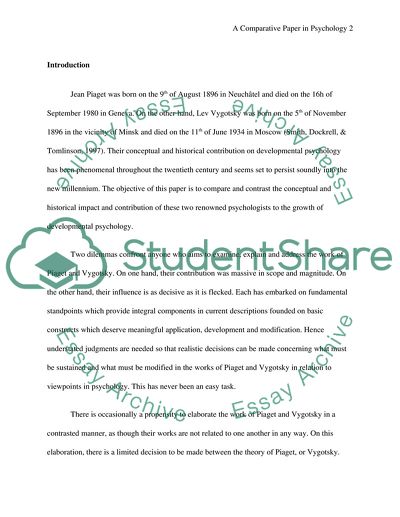Cite this document
(“Jean Piaget and Lev Vygotsky: Conceptual and Historical Contributions Term Paper”, n.d.)
Jean Piaget and Lev Vygotsky: Conceptual and Historical Contributions Term Paper. Retrieved from https://studentshare.org/psychology/1728606-compare-and-contrast-the-contribution-of-two-prominent-figures-to-the-development-our-discipline-psychology
Jean Piaget and Lev Vygotsky: Conceptual and Historical Contributions Term Paper. Retrieved from https://studentshare.org/psychology/1728606-compare-and-contrast-the-contribution-of-two-prominent-figures-to-the-development-our-discipline-psychology
(Jean Piaget and Lev Vygotsky: Conceptual and Historical Contributions Term Paper)
Jean Piaget and Lev Vygotsky: Conceptual and Historical Contributions Term Paper. https://studentshare.org/psychology/1728606-compare-and-contrast-the-contribution-of-two-prominent-figures-to-the-development-our-discipline-psychology.
Jean Piaget and Lev Vygotsky: Conceptual and Historical Contributions Term Paper. https://studentshare.org/psychology/1728606-compare-and-contrast-the-contribution-of-two-prominent-figures-to-the-development-our-discipline-psychology.
“Jean Piaget and Lev Vygotsky: Conceptual and Historical Contributions Term Paper”, n.d. https://studentshare.org/psychology/1728606-compare-and-contrast-the-contribution-of-two-prominent-figures-to-the-development-our-discipline-psychology.


